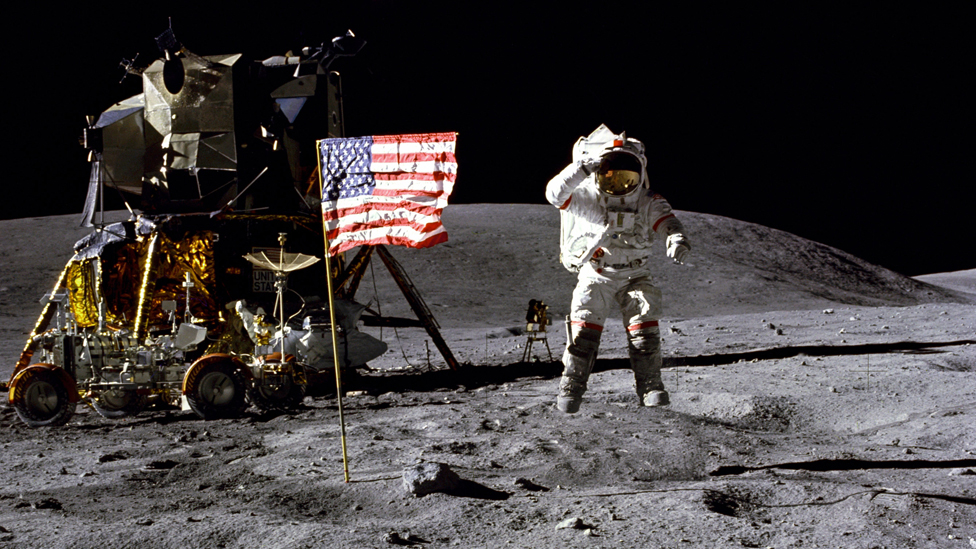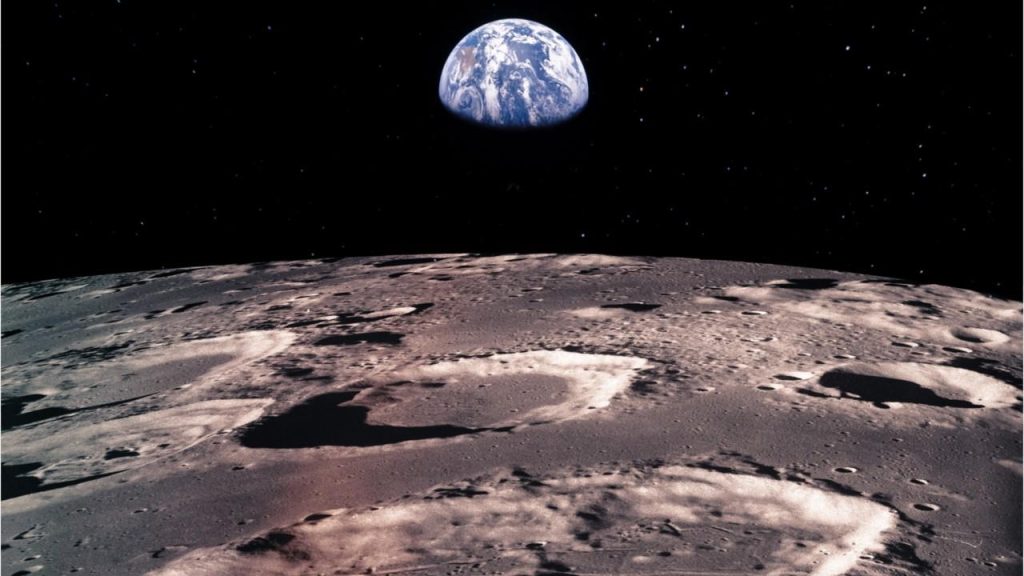Community
How do we know that man went to the Moon? The Herald explains

EVERY single argument claiming that NASA faked the Moon landings has been discredited. But even today, 50 years later, people discuss conspiracy claims online, on television programmes and around the dinner table.
Herald moon fact: With a powerful amateur telescope, you can see the Apollo landing sites and, if you look at the photos from the Lunar Reconnaissance Orbiter, you can spot the remnants of the Apollo missions yourself.

Were the Moon landings faked?
If you find yourself in a debate questioning whether humankind first stepped on the Moon on 20 July 1969, the chances are that you are woefully underprepared. Most people take it as gospel that the US government, NASA, the 12 astronauts in total who have walked on the Moon, and the 400,000 people involved in the Apollo programme would have neither the will nor the way to fake one of humanity’s greatest ever achievements.
But there are those who think the landings were a hoax. They claim the US government faked Apollo 11 and later missions either to deal a crucial blow to the USSR in the Space Race, or to boost NASA funding, or to divert attention away from the Vietnam War. The argument for any of these viewpoints rests on finding evidence that the landings were faked.
And more often than not, people point out peculiarities in specific images or videos to deal the critical blow. If someone uses these oddities as evidence, what do you say? Here are the most common arguments that support this view, and why each of them is wrong.
Evidence of the moon landings include items left there, reflectors installed on the surface, and lunar rocks brought back to Earth.
Photographic evidence
One of the most popular conspiracy arguments is that there are never any stars in Apollo photos. Free from Earth’s light pollution and hazy atmosphere, you would expect to see thousands of stars in all the astronauts’ images. Unfortunately, this argument rests on the photos being snapped during the lunar night. All manned missions to the Moon took place in sunny daytime. This meant starlight lost the battle against the very bright surface of the Moon, too dim to show up in photos.
Another common argument is that the crosshairs that appear in many Apollo images sometimes appear to be behind objects in the photos. If the images were real, this would be impossible, suggesting someone painted them on. But testing here on Earth has shown that the brightly lit objects make the crosshairs appear fainter. When these images are copied or scanned some of this detail is lost completely, giving the effect that the crosshair is behind the object in certain shots.
Others point to an oddity in a photo of a Moon rock taken during the Apollo 16 mission. There appears to be a ‘C’ written on it, like a lettered movie prop. Again, analysing the original photo there is no anomaly – the ‘C’ isn’t there. Most likely it was a piece of hair or thread introduced during copying.
A more subtle argument that the landings were faked is based on various misunderstandings of NASA equipment and lunar physics. A well-known example is the American flag that Neil Armstrong and Buzz Aldrin placed on the Moon. It appears to flutter in the wind in some photos. How could this happen when the Moon has no wind?
In fact, it isn’t fluttering at all. A horizontal rod at the top of the pole holds the flag unfurled. This makes it look like the wind is stopping it from hanging down. And there is a fluttering effect because the weak gravity on the Moon is not strong enough to uncrumple the flag. After a little waving while the astronauts planted the flags into the Moon’s surface, they have remained still ever since.

Fried by radiation
Perhaps the most convincing argument that the landings were faked has to do with something called the Van Allen belts. These are two giant doughnut-shaped belts surrounding the Earth. They are made of highly energetic charged particles from the solar wind. Some people believe humans couldn’t have passed through these belts without being exposed to lethal doses of radiation.
This was a genuine concern before the Apollo missions. And it is the reason scientists behind Apollo 11 made sure they protected the astronauts as best they could. They insulated the spacecraft from radiation with an aluminium shell. And they chose a trajectory from the Earth to the Moon which minimised the amount of time spent in the Van Allen belts.
Readings from the nine Apollo missions that reached the Moon showed the astronauts’ average radiation exposure was 0.46 radiation-absorbed dose (rad). This proved NASA was right to shield the astronauts from radiation. Though it’s less than that experienced by some nuclear energy workers, 0.46 rad is around 10 times more than the radiation exposure of medical professionals who routinely work with x-ray and radiotherapy machines.
Proof we walked on the Moon
Of course, until we return to the Moon there will always be anomalies and oddities in the records that can spark new claims that the Moon landings were faked. But it is the sheer size and variety of this record that proves every one of these claims to be false.
From the Apollo Moon missions, there are 8,400 publicly available photos, thousands of hours of video footage, a mountain of scientific data, and full transcripts and audio recordings of all air-to-ground conversations. We even have 382 kilograms of Moon rock that Apollo astronauts brought back to Earth. These rocks have been independently verified as lunar by laboratories around the world, ruling out a US conspiracy.
If this is not enough to convince the most hardened sceptic, NASA’s Lunar Reconnaissance Orbiter (LRO) might sway them. Today, LRO takes high-resolution pictures of the lunar surface from a low orbit. During its mission, it has captured the landing sites and the abandoned descent modules and rovers from the Apollo missions. And its resolution is so good it has picked up the dark squiggly paths that the astronauts’ footprints made. Spacecraft from China, India and Japan have also spotted these landing sites, providing further independent verification of the landings.
A final nail in the coffin of the Moon hoax theories is a simple instrument installed 50 years ago by Apollo 11. During their day on the Moon, Armstrong and Aldrin planted a lunar laser ranging retroreflector array on the surface. It’s still operational today and allows us to reflect lasers off of it and measure the distance to the Moon down to the centimetre. We simply couldn’t do this if we hadn’t visited the Moon.
Community
Cresswell Quay conservation consultation launch backed

A PUBLIC consultation is to be held on potentially making one of south Pembrokeshire’s most scenic estuarial villages, home to a CAMRA award-winning pub, a conservation area.
At the July 24 meeting of Pembrokeshire Coast National Park, members backed a public consultation being launched for potentially designating Cresswell Quay as a Conservation Area.
Cresswell Quay, home to the Cresselly Arms, is “one of the most scenic villages within the National Park and is highly significant as a very early coal port, retaining several buildings of architectural importance,” a report for members stated.
There are some 500 conservation areas, defined as “areas of special architectural or historic interest, the character of which it is desirable to preserve or enhance” across Wales, 14 in the national park.
The report for Park members added: “The designation of a conservation area at Cresswell Quay would recognise the special architectural and historic interest of the village and would ensure that future development either preserves or enhances the character and appearance of the conservation area.
“The designation would introduce controls over the demolition of buildings which would require conservation area consent and affords greater protection of works to trees. Officers consider that part of the special interest of Cresswell Quay is the relationship between the village, the estuary and its wooded setting, which is unusual in a Pembrokeshire context.”
The consultation on the conservation status has been backed, rather than simply be designated in-house as Cresswell Quay is the home of the Buildings Conservation Officer; the consultation being launched “to avoid any potential conflict of interest or wider public misconception”.
It will be undertaken by Linda Jones of Babb Architects, Whitland and Emily Holder, Conservation Assistant, supported by members of the Strategic Policy team.
Initial engagement with key landowners and the three community councils of the area has already taken place, and a public drop-in event is expected to take place in early August.
Further information on the consultation will also promoted at events including the Pembrokeshire County Show and Martletwy Show.
At the national park meeting, member Cllr Simon Hancock expressed his surprise the ‘Quay was not already in a conservation area.
The eight-week consultation is expected to be launched on July 29, finishing on September 23.
Earlier this year the Cresselly Arms won the CAMRA (Campaign for Real Ale) pub of the year award for the whole of Wales.
The Cresselly Arms averaged 89 points out of a maximum 120 after surveys were conducted across the country by members of other branches.
Community
Public reminded to stay away from Ward’s Yard and Criterion Quay

THE PORT of Milford Haven is reminding members of the public to stay away from Ward’s Yard in Milford Haven and Criterion Quay (sometimes known as the offshore jetty) in Pembroke Dock due to concerns over public safety.
Despite significant security measures, people continue to access the sites illegally, ignoring and sometimes damaging the onsite signage and fences.
Niall Yeomans, Head of Health, Safety and Security at the Port of Milford Haven said: “Safety is our key priority. Members of the public are continuously putting themselves and members of our team at risk of serious harm by trespassing in these areas.”
“Both Ward’s Yard and Criterion Quay are unsafe for public access. They are isolated areas next to deep water and are susceptible to slips, trips and falls.”
Both sites are owned by the Port of Milford Haven and are private property. Anyone found onsite without consent is trespassing, and any criminal damage could result in prosecution.
Anyone who sees any suspicious activity at Ward’s Yard or Criterion Quay is asked to contact Dyfed Powys Police on 101 urgently.
Community
Port sponsors water safety programme for Pembrokeshire pupils

OVER 200 children from coastal schools in Pembrokeshire have learnt important water safety skills in a project sponsored by the Port of Milford Haven.
Dale-based water sports provider, Windswept CIC, has been running the Swim Safe programme for Year 5 and 6 pupils from St Francis Catholic Primary School, Milford Haven Community Primary School, Neyland Community School, Broad Haven Primary School and Cleddau Reach School over the past few months. Swim Safe was started by the RNLI and Swim England and consists of a teacher-led school session with materials and lesson plans provided, followed by a beach session covering a wide range of topics including what to do in an emergency situation, survival techniques and recognising risks associated with water.
Director of Windswept, Sarah Bagley, said “This is our second season conducting Swim Safe training to schools in Pembrokeshire, supported by the Port of Milford Haven. Swim Safe is such a great initiative and is so important for all young children to equip them with life saving skills prior to the summer holidays. We’d like to thank the Port of Milford Haven once again for supporting this great cause!”
Sara Richards, PR and Communications Executive at the Port of Milford Haven, attended a session with Cleddau Reach School from Llangwm and commented “Living near the sea means it’s vital that young people know what to do in an emergency and are aware of the risks associated with the water. We want everyone to enjoy the coastline as much as possible this summer armed with the safety tips that they will have learnt with Windswept.”
-

 Education5 days ago
Education5 days agoMilford Tesco worker achieves Oxford dream and lands top legal job
-

 Crime4 days ago
Crime4 days agoHaverfordwest man admits having nearly 1000 child and animal images
-

 Crime4 days ago
Crime4 days agoYouth set to appear in court over serious sexual offences
-

 Crime4 days ago
Crime4 days agoPolice investigating after man injured during altercation in cemetery
-

 Education4 days ago
Education4 days agoPupils delight in ice cream treat from Pembrokeshire’s number one van
-

 Crime4 days ago
Crime4 days agoTown centre ‘stinking of skunk’ as police strip cannabis farm
-

 Crime3 days ago
Crime3 days agoFag-butt police court summonses spark debate in Pembrokeshire
-

 News6 days ago
News6 days agoProposal to give firefighters a council tax discount to go to Cabinet





























